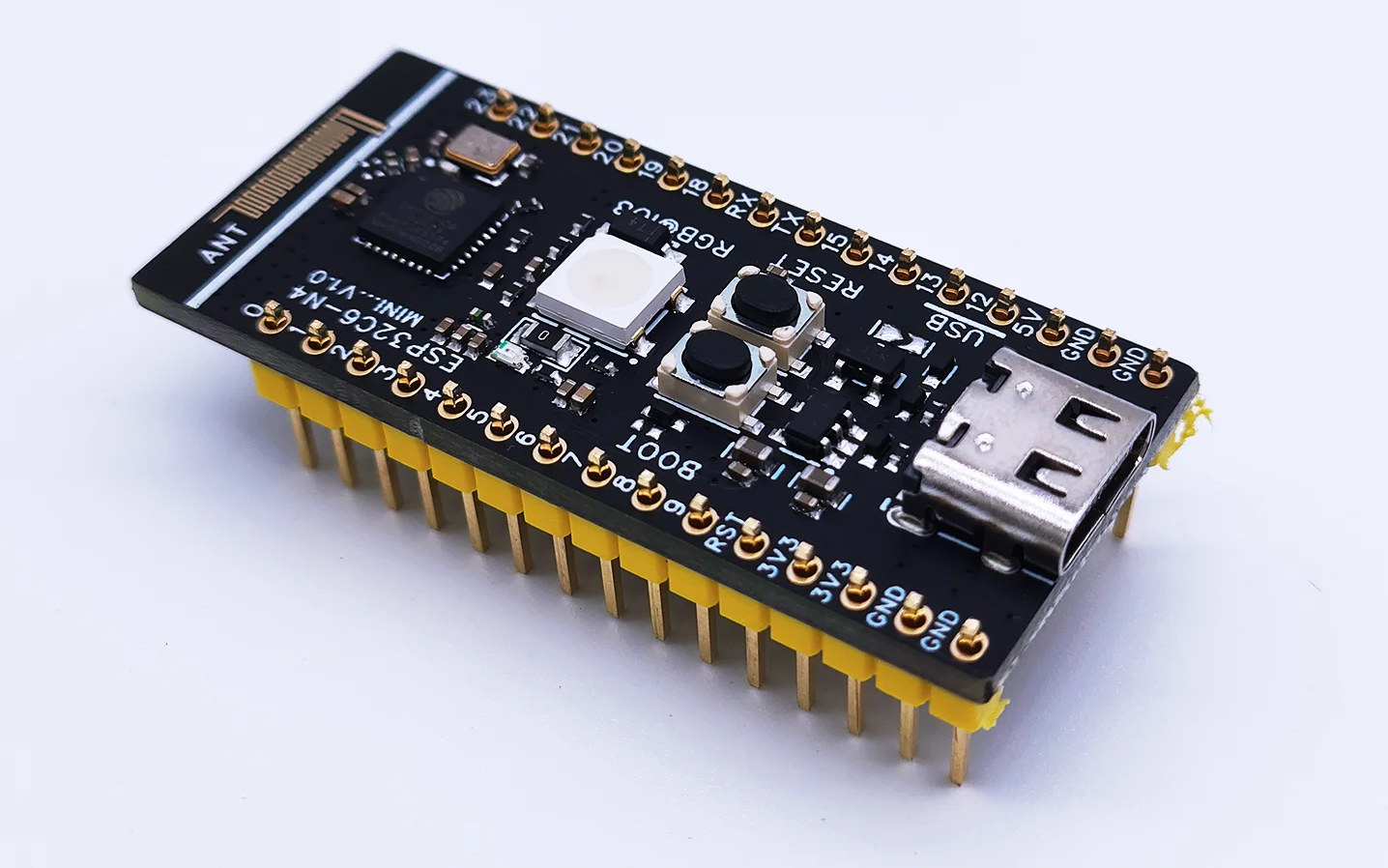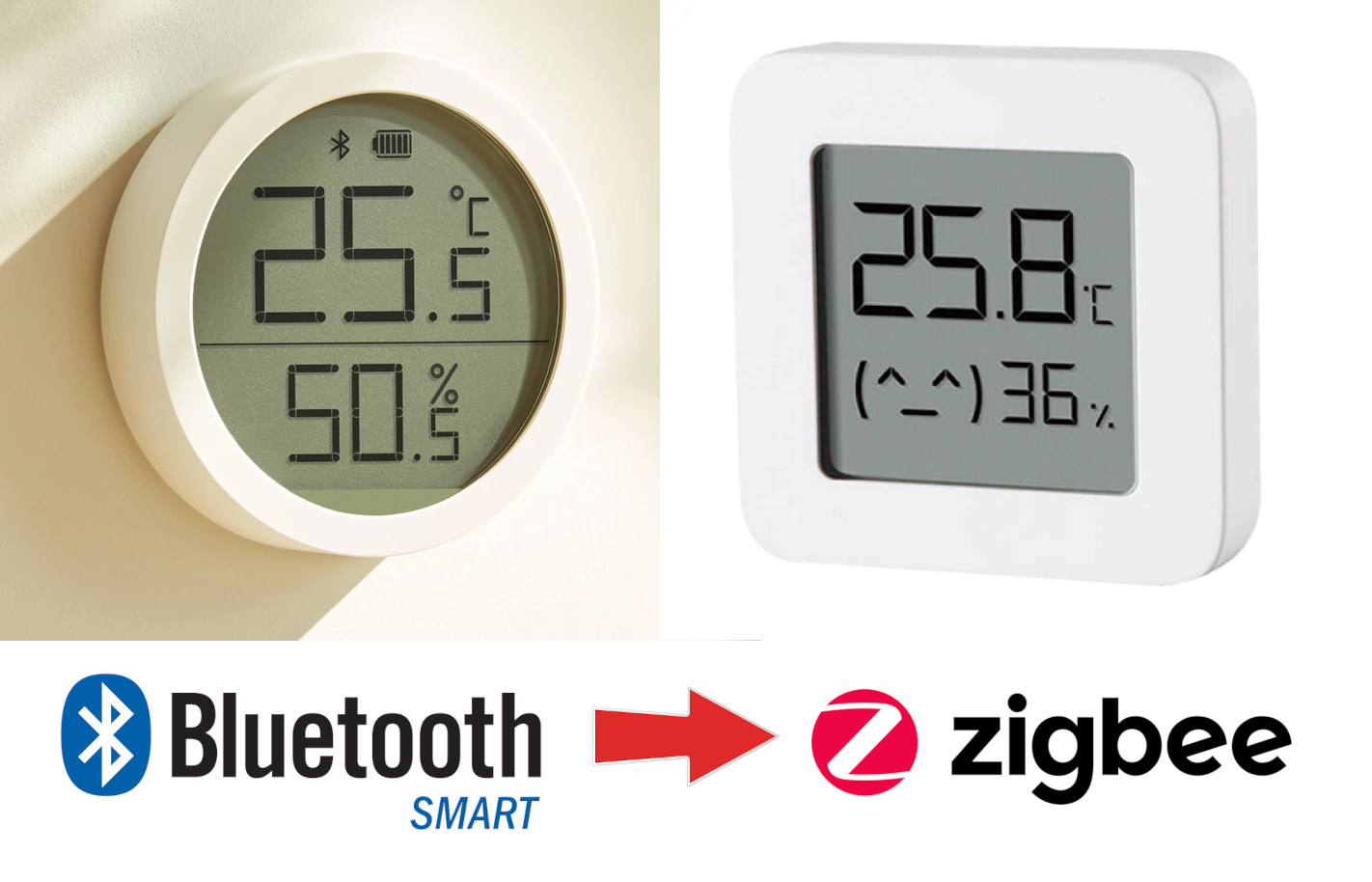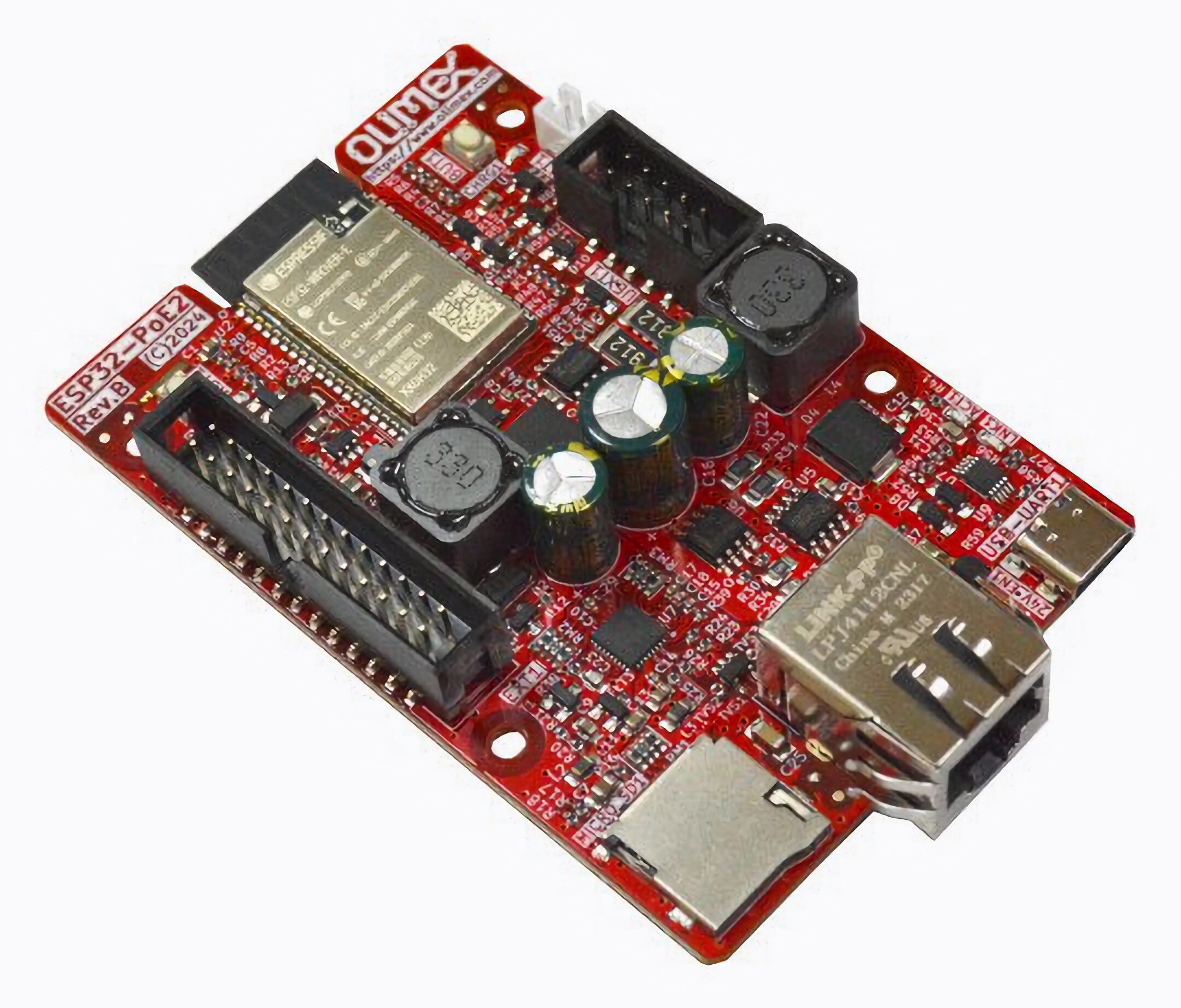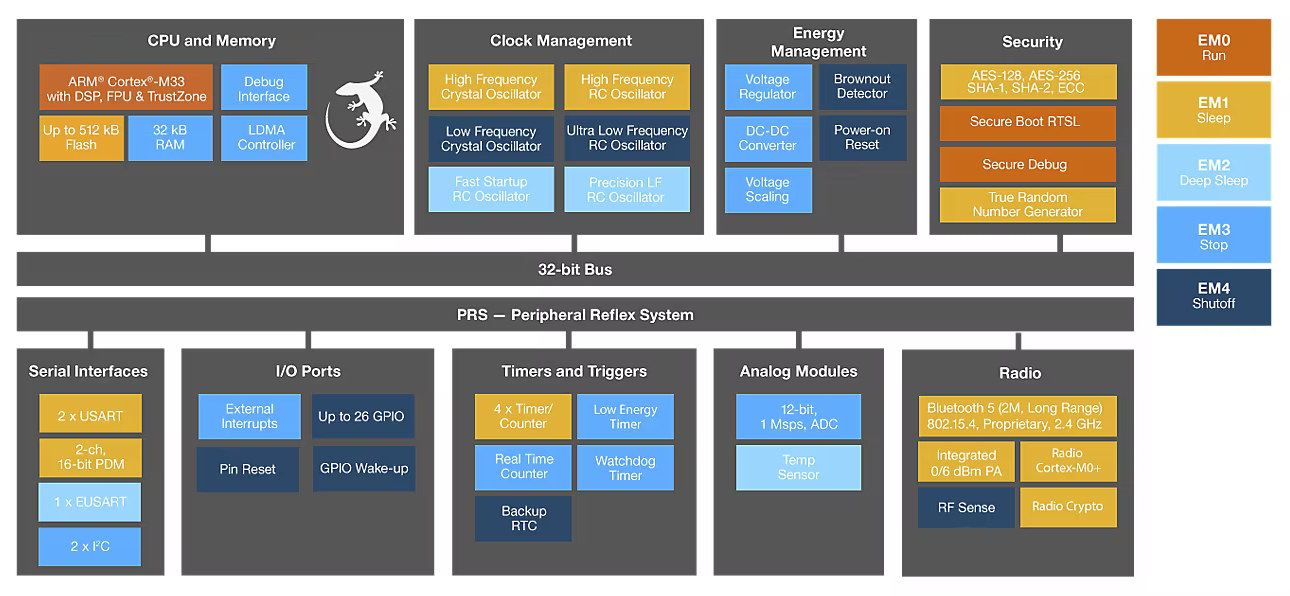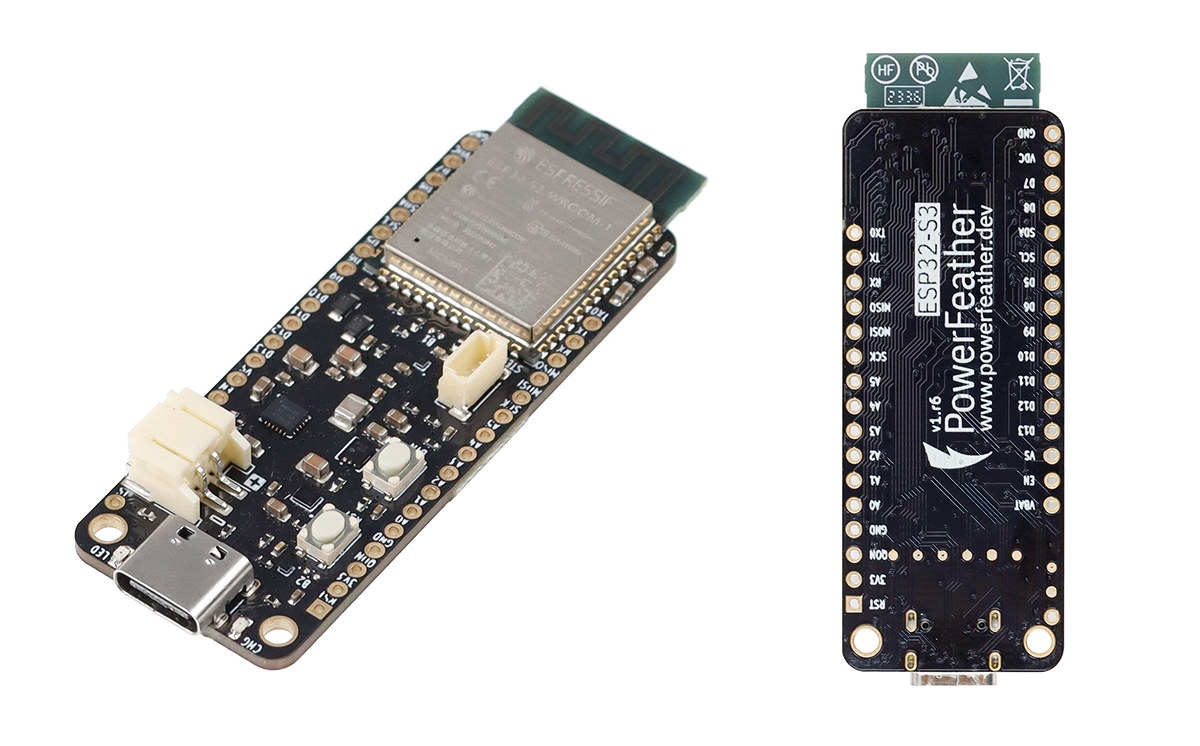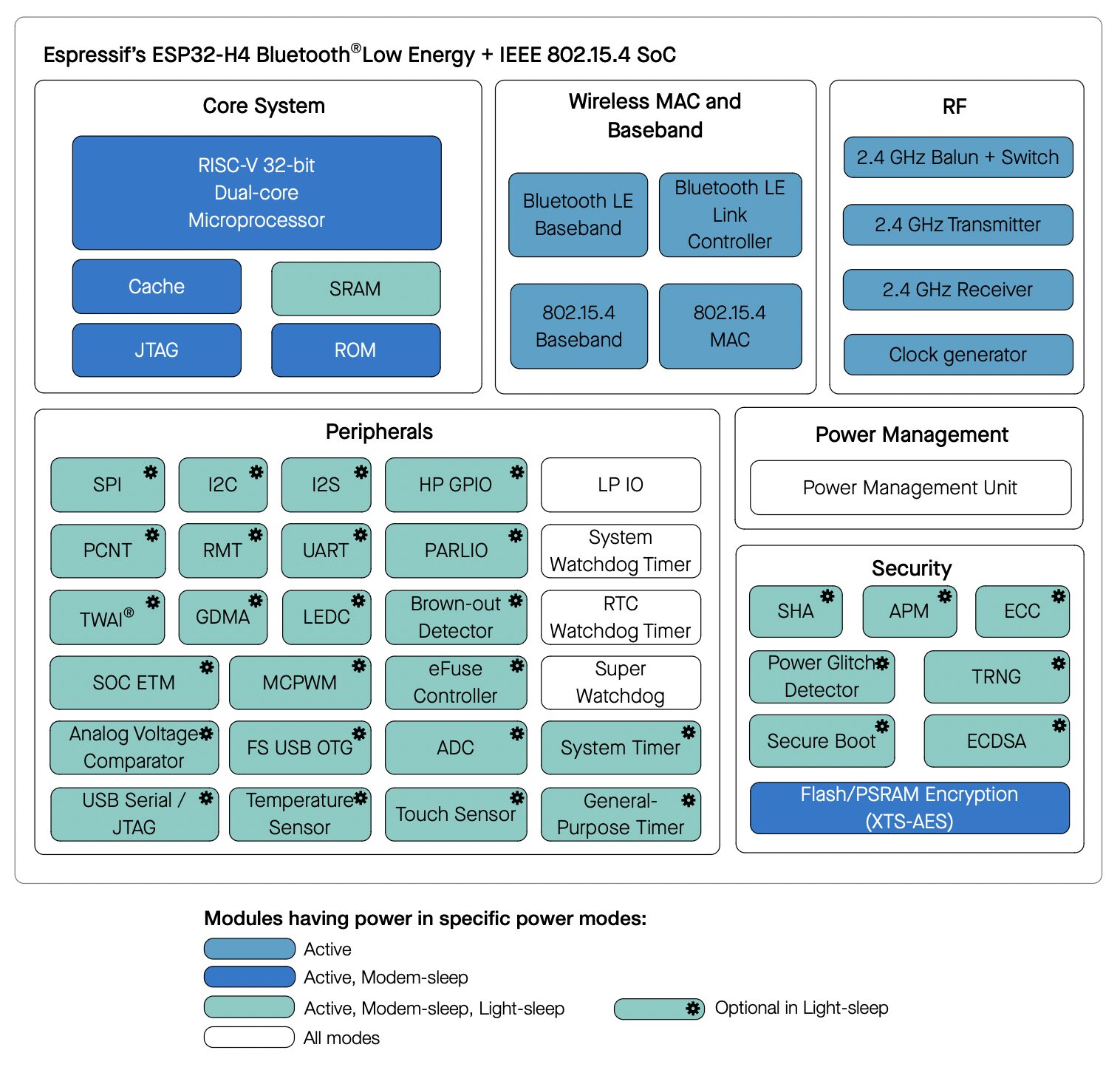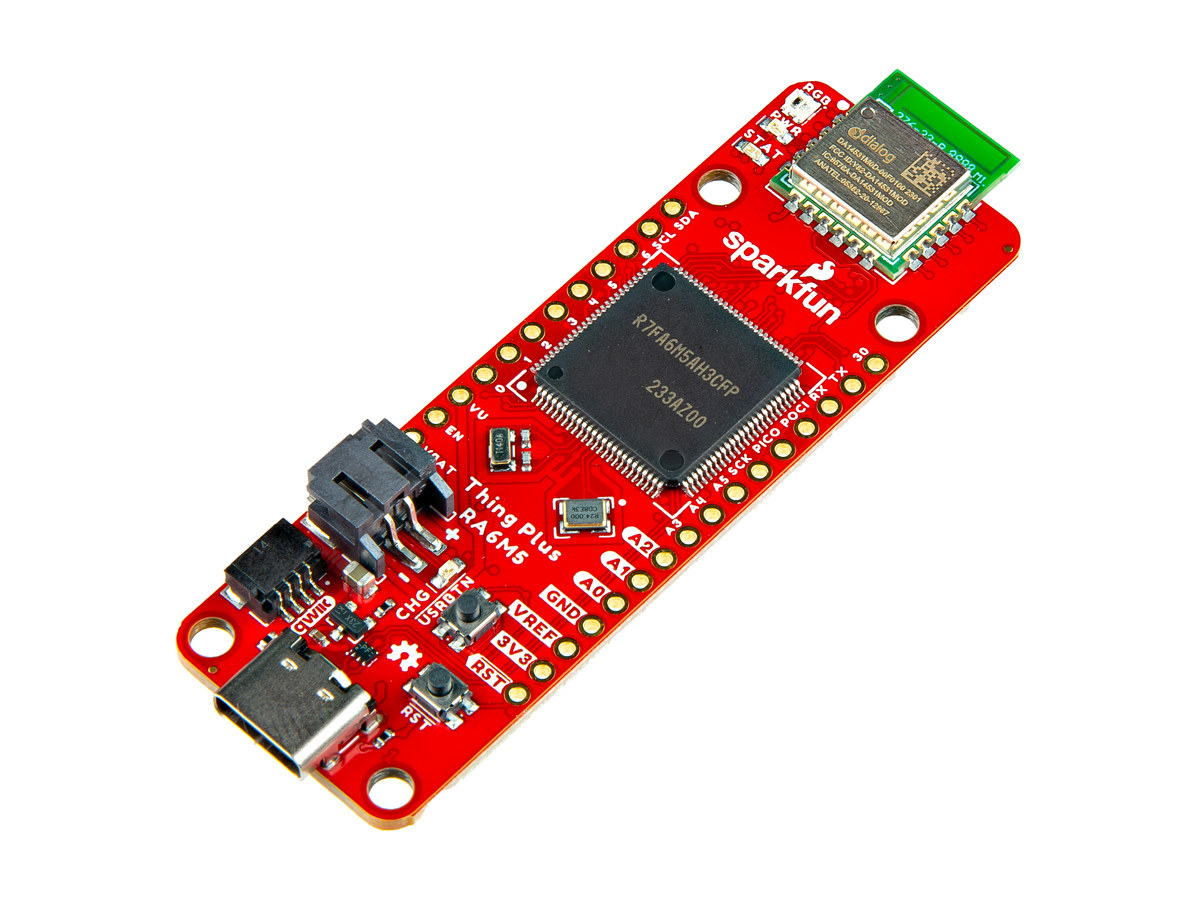WeAct ESP32-C6-Mini is a small development board based on Espressif Systems ESP32-C6 WiFi 6, Bluetooth, and 802.15.4 wireless SoC that’s the cheapest we’ve seen so far selling for just $3.86 on Aliexpress. WeAct was one of the first companies to launch a third-party ESP32-C6 development board year with the price starting at just $6. I still remember the excitement around the first $5 ESP8266 WiFi 4 module when we first covered it in 2014, and ten years later, we can get a full $4 development board with a more powerful 160 MHz RISC-V microcontroller, WiFi 6, Bluetooth 5.0, and an 802.15.4 radio for Thread, Zigbee, and Matter. WeAct ESP32-C6-Mini specifications: Wireless SoC – ESP32-C6-N4 CPU Single-core 32-bit RISC-V clocked up to 160 MHz Low-power RISC-V core @ up to 20 MHz Memory – 512KB SRAM, 16KB low power SRAM Storage – 320KB ROM, and 4MB flash Wireless – 2.4 GHz […]
Enabling Zigbee in Bluetooth LE temperature and humidity monitors from Xiaomi and Qingping using Telink TLSR8258 WiSoC
Qingping CGDK2 and Xiaomi LYWSD03MMC Bluetooth LE (BLE) temperature and humidity monitors based on Telink TLSR8258 can be switched to Zigbee thanks to a custom firmware flashed over-the-air. Telink TLS8258 is a multi-protocol wireless microcontroller supporting Bluetooth LE 5, Bluetooth Mesh, Zigbee, RF4CE, Thread, 6LoWPAN, HomeKit, ANT, and 2.4GHz proprietary and found in boards such as the LILYGO T-Zigbee and various products. Some products only enable one wireless protocol, for example, Bluetooth LE as in the just-mentioned Qingping and Xiaomi monitors, but “SmartHomeScene” has found out that it was possible to switch from BLE to Zigbee on those by simply updating the firmware. The Telink TLS8258 devices mentioned above will publish data over BLE every 10 minutes (unless humidity or temperature changes, in which case data is transmitted immediately) with the default firmware, but Zigbee can be enabled by using the pvvx custom firmware for the following models: Xiaomi LYWSD03MMC […]
Olimex ESP32-POE2 board offers up to 25W for power-intensive applications
The Bulgarian hardware manufacturer, Olimex, has designed a new ESP32 board with Power over Ethernet (PoE) functionality. The Olimex ESP32-POE2 board builds on the original ESP32-POE and features the same ESP32-WROOM-32 microcontroller module with Wi-Fi and Bluetooth connectivity. However, it supports up to 25W power delivery from the Ethernet port via PoE and can be used in more demanding projects. The Olimex ESP32-POE2 board features a low-power design and consumes only 200µA in deep sleep mode. The board can be powered via USB-C, Ethernet, or Li-Po battery. The Ethernet interface is built on Texas Instruments’ TPS2378PW chip with IEEE 802.3at classification and legacy PoE support. Powering with PoE requires at least 37V DC for seamless operation. Two proprietary connectors (UEXT and EXT1) can be used to add sensors and other modules and expand the board’s operation for IoT projects. Users can select between 24V/0.75A or 12V/1.5A power output, with a […]
Silicon Labs BG22E, MG22E, FG22E wireless MCUs target energy harvesting, battery-free IoT devices
Silicon Labs xG22E is a family of wireless SoCs consisting of the BG22E, MG22E, and FG22E and designed to operate within an ultra-low power envelope required for battery-free, energy harvesting applications such as electronic shelf labels, Smart Home sensors, remote controls, and so on. Like the just-announced Silicon Labs MG26, BG26, and PG26, the new xG22E family features a Cortex-M33 core clocked up to 76.8MHz. As an evolution of the low-power BG22, the BG22E offers Bluetooth 5.4 LE connectivity with “Energy Conservation” to further enhance battery longevity and even support designs that eliminate the need for batteries. The MG22E is similar but embeds an 802.15.4 radio for Zigbee connectivity, and the FG22E provides a 2.4GHz proprietary plus the Cortex-M33 is clocked up to 38.4MHz. Silicon Labs BG22E, MG22E, FG22E specifications: MCU – Arm Cortex-M33 @ 76.8 MHz with DSP and FPU (38.4 MHz for FG22E) Memory – Up to 32 […]
ESP32-S3 PowerFeather board supports up to 18V DC for solar panel input
The ESP32-S3 PowerFeather board is an Adafruit Feather-shaped ESP32-S3 WiFi and BLE IoT board that can be powered by a Li-Ion or LiPo battery and supports up to 18V DC input for direct connection to a solar panel. The developer told CNX Software that the main differentiating factor from other ESP32-S3 development boards was “its extensive power management and monitoring features” with a wide DC input range, supply and battery monitoring, and battery protection features. ESP32-S3 PowerFeather specifications: ESP32-S3-WROOM-1-N8R2 MCU – ESP32-S3 dual-core Tensilica LX7 up to 240 MHz with 512KB SRAM, 16 KB RTC SRAM Memory – 2MB QSPI PSRAM Storage – 8MB QSPI flash Wireless – WiFi 4 and Bluetooth 5 LE + Mesh; PCB antenna USB – 1x USB-C 1.1 OTG port for power and programming Expansion 2x 16-pin 2.54 mm pitch headers with 23x multi-function GPIO: UART, I2C, SPI, I2S, SDIO, PWM, CAN, RMT, Camera, LCD […]
ESP32-H4 low-power dual-core RISC-V SoC supports 802.15.4 and Bluetooth 5.4 LE
Espressif Systems has formally announced the ESP32-H4 low-power dual-core 32-bit RISC-V wireless microcontroller with support for 802.15.4 and Bluetooth 5.4 LE portfolio after having unveiled it at CES 2024. It’s the first Espressif chip to support Bluetooth 5.4 LE with previous models such as ESP32-H2 or ESP32-C6 only supporting Bluetooth 5.0/5.2. Besides BLE 5.4 support, the new ESP32-H4 dual-core RISC-V WiSoC is an evolution of the ESP32-H2 single-core chip with PSRAM support (up to 4MB built-in), additional GPIOs (36 vs 24), touch sensing GPIOs, and some extra security features such as a power glitch detector also found in the recently announced ESP32-C61. ESP32-H4 specifications: CPU – Dual-core 32-bit RISC-V core (at up to 96 MHz) RAM – 320KB KB SRAM, optional PSRAM up to 4MB Storage – 128KB ROM, External flash support Wireless connectivity IEEE 802.15.4 radio with Zigbee and Thread support, Matter protocol Bluetooth 5.4 (LE) radio designed in-house, […]
SparkFun Thing Plus – RA6M5 board supports Bluetooth 5.1 LE through Renesas DA14531MOD module
SparkFun Thing Plus – RA6M5 is a small MCU board based on a 200 MHz Renesas RA6M5 Cortex-M33 microcontroller and a Renesas DA14531MOD Bluetooth 5.1 LE module that follows Adafruit Feather/Sparkfun Thing Plus form factor. The module can transmit data over BLE with just 4mA (at 3.3V) power consumption and the company claims the board to be powered by a coin-cell battery. A LiPo battery can also be connected to the board through a 2-pin JST battery connector, and the Things Plus – RA6M5 board also features a single-cell charger and LiPo fuel gauge. Sparkfun Thing Plus – RA6M5 specifications: Microcontroller – Renesas R7FA6M5AH3CFP Core – Arm Cortex-M33 microcontroller @ up to 200 MHz Memory – 512KB SRAM Storage – 2MB Flash Security – Arm TrustZone, and Secure Crypto Engine 9 Wireless – Renesas DA14531MOD module for Bluetooth 5.1 LE connectivity with support for CodeLess AT command Datapump Radio Transmit […]
Silicon Labs MG26, BG26, and PG26 Cortex-M33 AI microcontrollers offer up to 3200KB flash, 512KB RAM, 64 GPIO’s
Silicon Labs has announced the xG26 family of Cortex-M33 wireless SoCs and MCUs that consists of the multiprotocol MG26 SoC, the Bluetooth LE BG26 SoC, and the PG26 general-purpose MCU without wireless connectivity, and features double the flash and RAM of the Silicon Labs xG24 devices. The xG26 family also comes with double the number of general-purpose input/output (GPIO) pins as the xG24 to enable engineers to build more complex devices in combination with the larger flash and memory reaching up to 3200 KB and 512KB respectively and also integrates a Matrix Vector Processor (MVP) for AI/ML hardware acceleration and Math functions. Silicon Labs MG26 and BG26 wireless SoCs MG26 and BG26 key features and specifications: MCU core – Arm Cortex-M33 @ 78 MHz AI/ML accelerator – Matrix Vector Processor that is 8x faster and 6x lower power than Cortex-M33 processing, and supports an MVP Math Library for non-ML workloads […]


